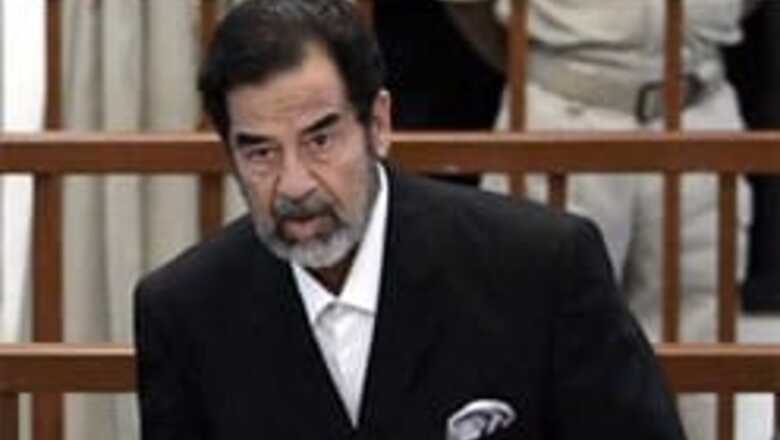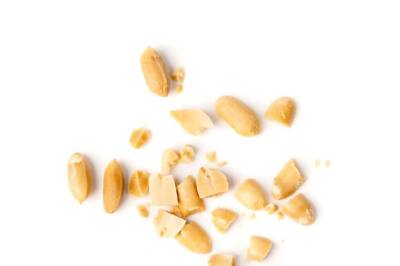
views
Baghdad: A subdued Saddam Hussein returned to court on Tuesday for his genocide trial, two days after another panel convicted him of crimes against humanity and sentenced him to hang.
Saddam, smiling faintly and dressed in a black suit with white shirt, found his way quietly to his seat among the other six defendants charged in the Operation Anfal crackdown against Iraqi Kurds in the late 1980s.
Saddam showed none of the bravado of two days ago, when he shouted ''Long live the people and death to their enemies!'' as another court sentenced him to the gallows.
Instead, the ex-president sat in stony silence on Tuesday as Kurdish survivors told of being duped by promises of amnesty, only to watch their friends and family being shot by Iraqi government soldiers.
Saddam complained respectfully to the judge that the witnesses were not giving incriminating testimony, and that they were not being adequately cross-examined.
On Sunday, another five-judge panel convicted Saddam in the deaths of nearly 150 Shiite Muslims following a 1982 assassination attempt against him in the town of Dujail.
He and two others were sentenced to death by hanging. Four co-defendants received lesser sentences and one was acquitted.
The Anfal trial will continue while an appeal in the Dujail case is under way. The prosecution says about 180,000 Kurds, most of them civilians, were killed in the crackdown in 1987-88.
On Tuesday, the first witness, Qahar Khalil Mohammed, told the court that he and other men from his village surrendered to Iraqi soldiers after being promised that Saddam had issued an amnesty for them.
Instead, the 33 men were lined up at the bottom of a hill and soldiers opened fire on them.
''When they fired in our direction, we all fell to the ground,'' he said.
Mohammed said he was wounded but survived.
''When I went back, I saw my father and two brothers had been killed, as well as 18 of my relatives,'' he testified. He said an Iraqi medical officer used a broken bottle to clean his wound.
PAGE_BREAK
Another witness, Abdul-Karim Nayif, also told how many Kurds turned themselves in after promises of amnesty. He submitted a video of a mass grave found near his village after the Kurds gained self-rule in 1991.
The video showed numerous human remains.
On Monday, the chief prosecutor in the Dujail case said a nine-judge appeals panel was expected to rule on Saddam's guilty verdict and death sentence by the middle of January. That could set in motion a possible execution by mid-February.
In Tehran, the Iranian government called Tuesday for the death sentence on Saddam to be carried out, saying the former Iraqi dictator was a criminal who deserved to die.
''We hope the fair, correct and legal verdict against this criminal is enforced,'' government spokesman Gholam Hossein Elham told a news conference.
Iran and Iraq waged a bitter eight-year war after Saddam invaded the country in 1980.
Iraqi authorities imposed a lockdown on Baghdad and surrounding provinces in anticipation of the Sunday verdict. Those measures were lifted Monday after a feared surge in violence failed to materialise, although there were pro-Saddam rallies throughout Sunni Muslim areas of the country.
Shiites and Kurds, who suffered terribly under Saddam's rule, hailed the sentence as just.
Talabani said on Monday that although he opposes capital punishment, his signature is not needed to carry out Saddam's death sentence.
Talabani, a Kurd, has permanently authorized Abdul-Mahdi, a Shiite, to sign on his behalf. Abdul-Mahdi has said he would sign Saddam's death warrant, meaning two of three signatures were assured.



















Comments
0 comment